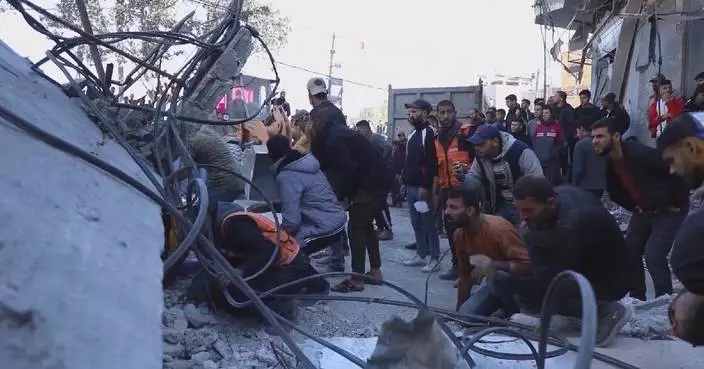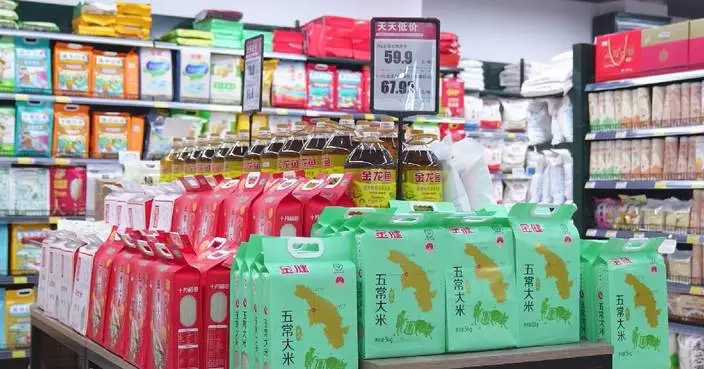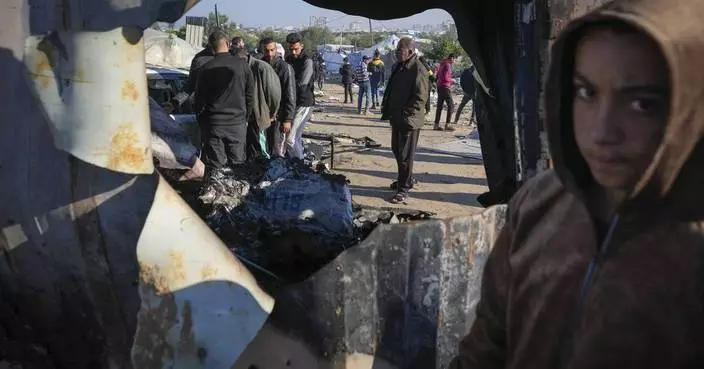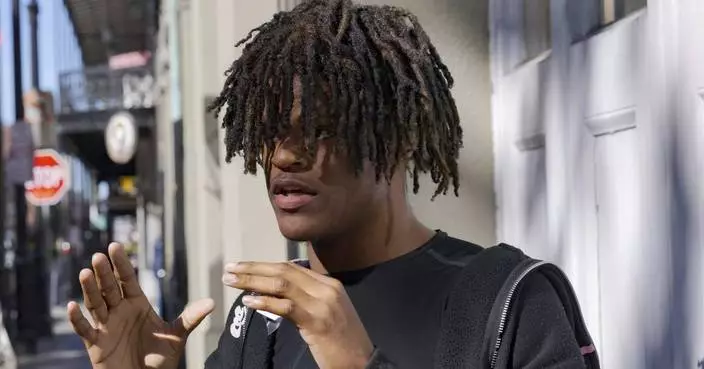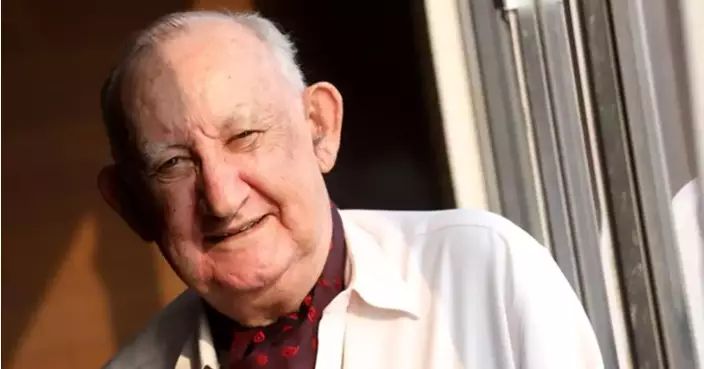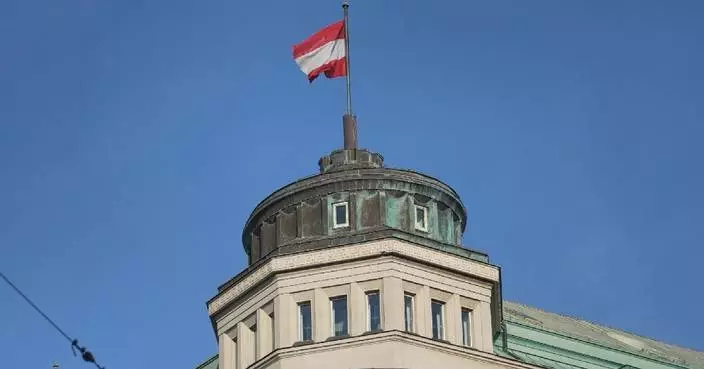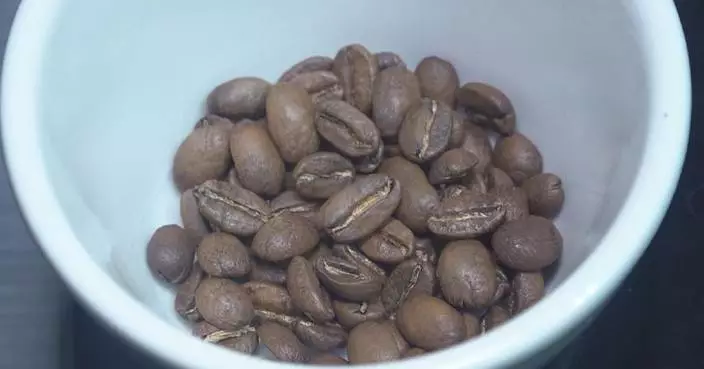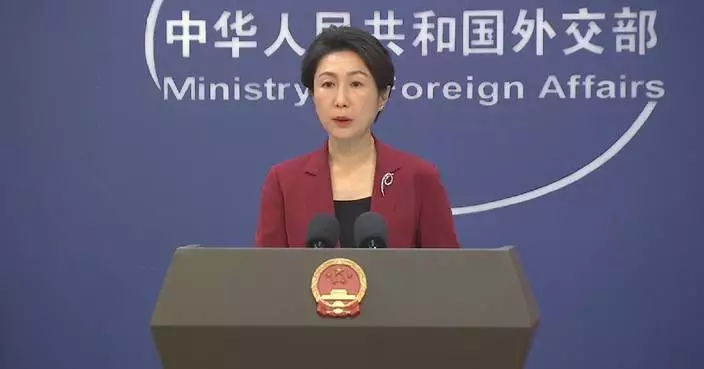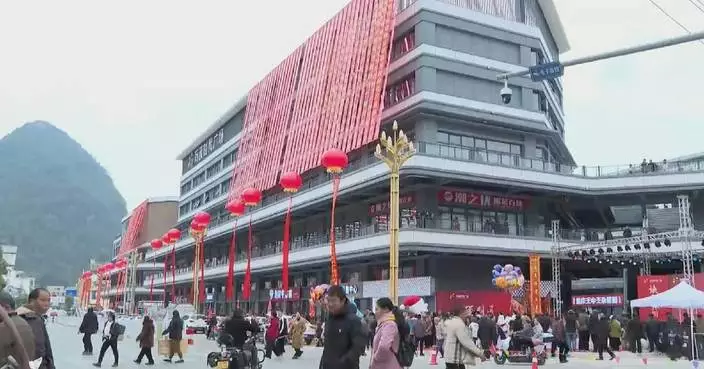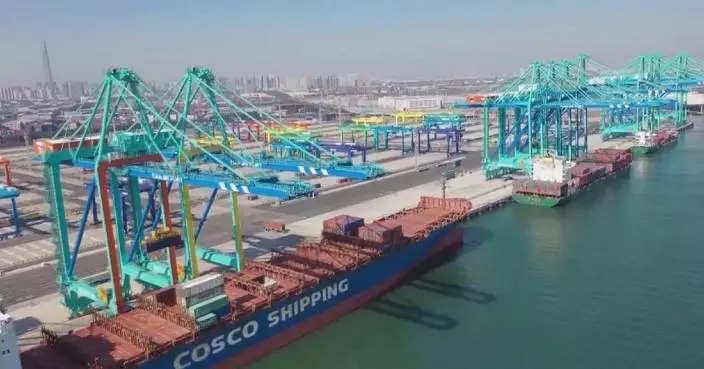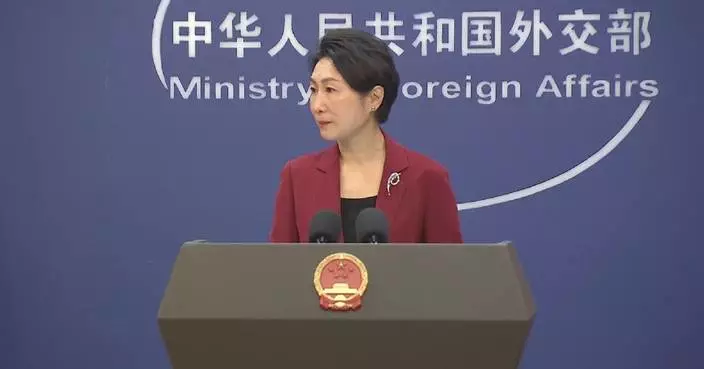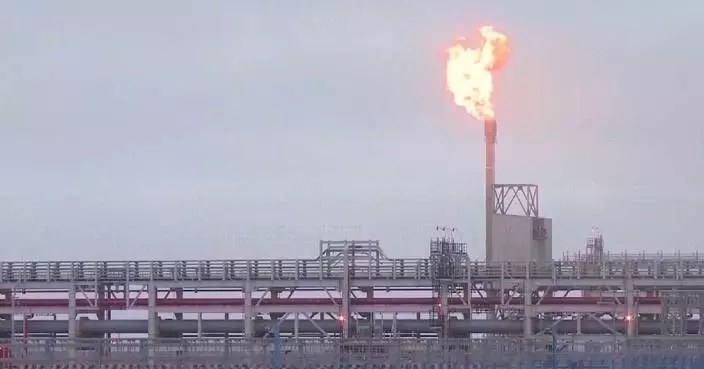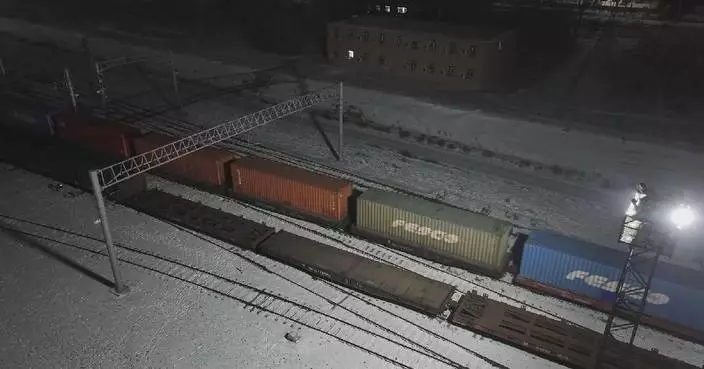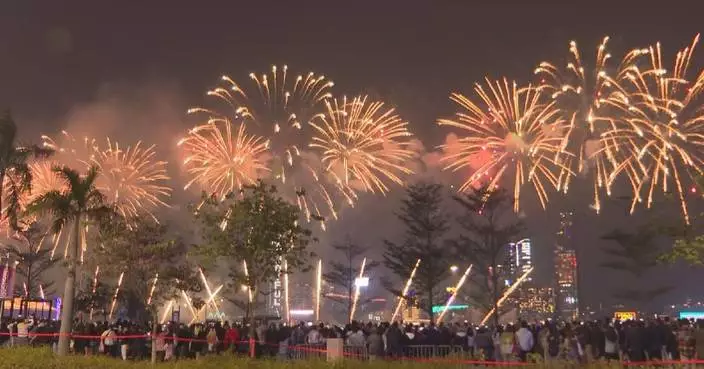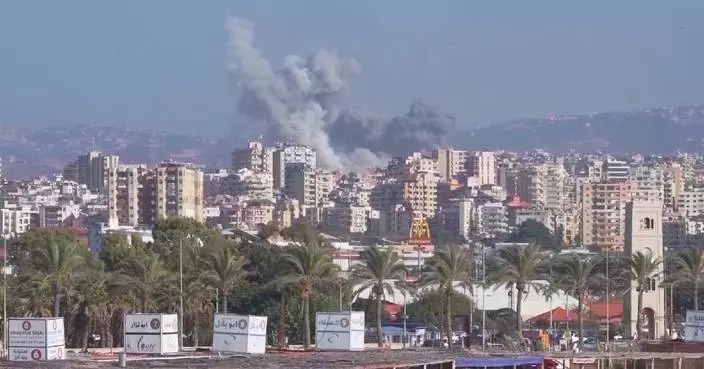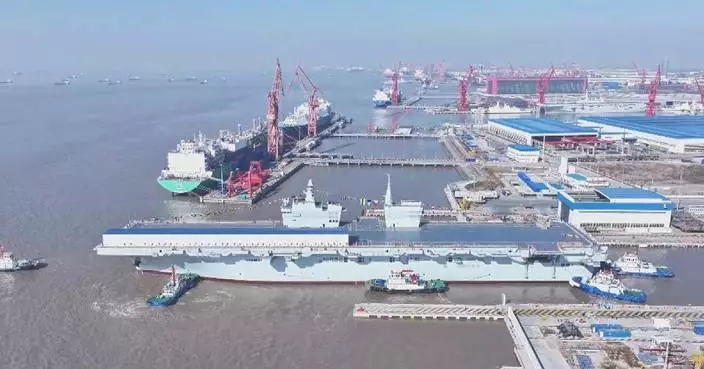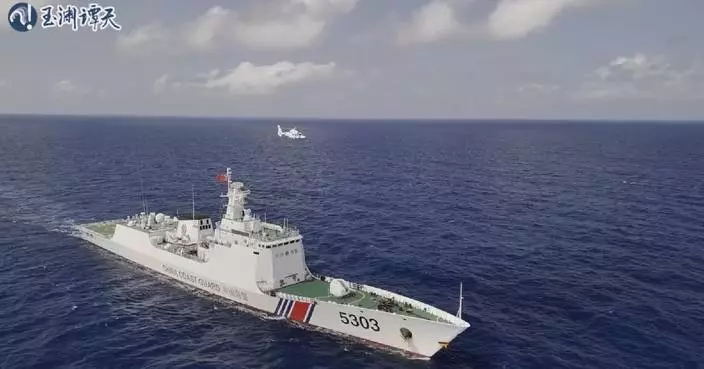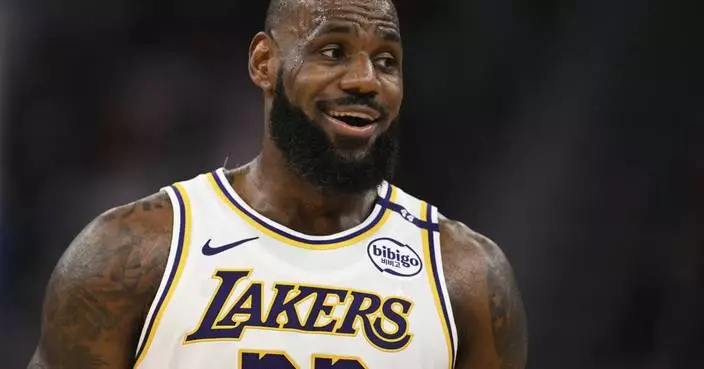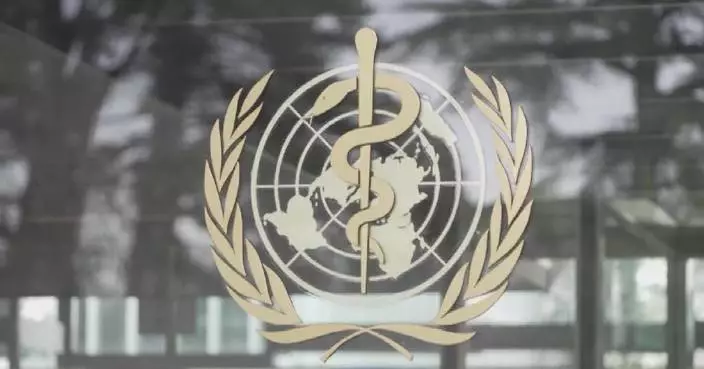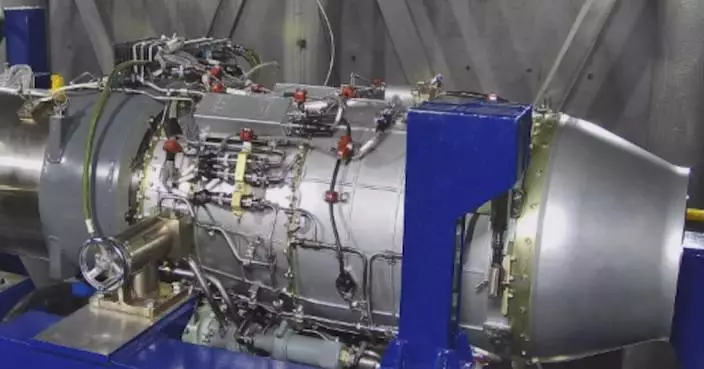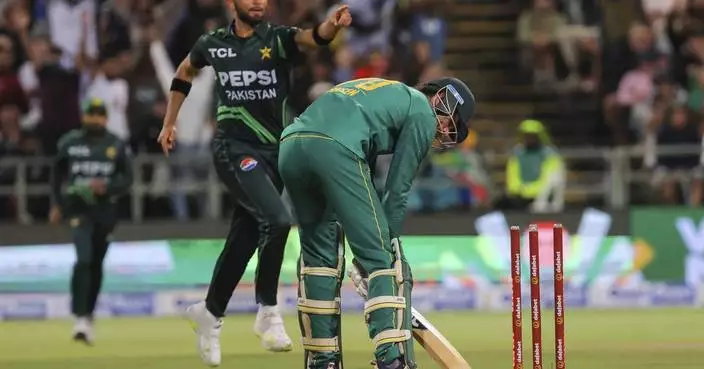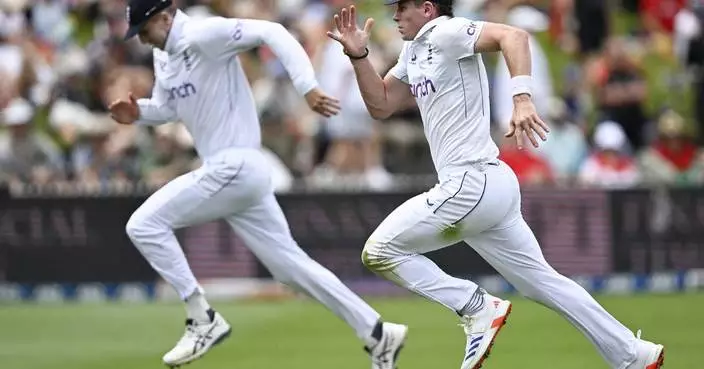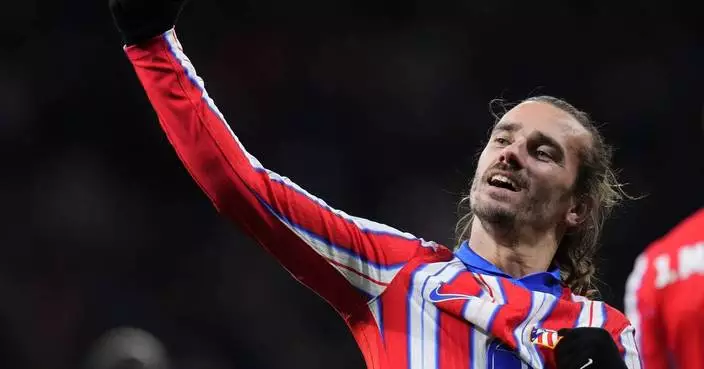Feature · News
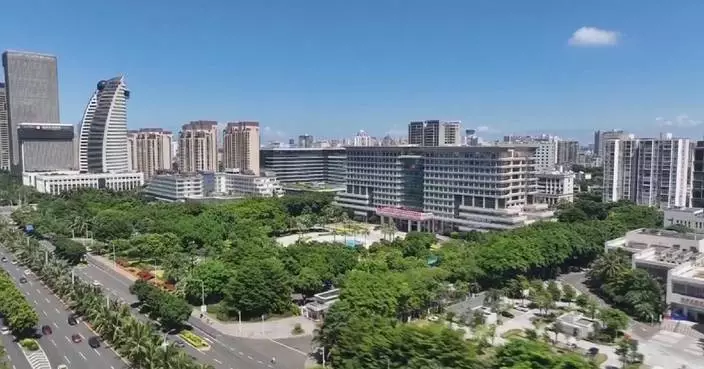
New regulations clarify environment, medicine import issues in Hainan Free Trade Port
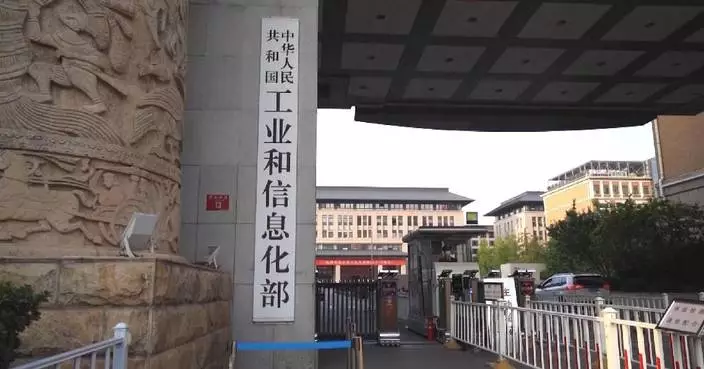
China's software, IT service industry sees double-digit growth in revenue in Jan-Nov 2024

China aims to annually achieve at least 15 pct data industry growth by 2029
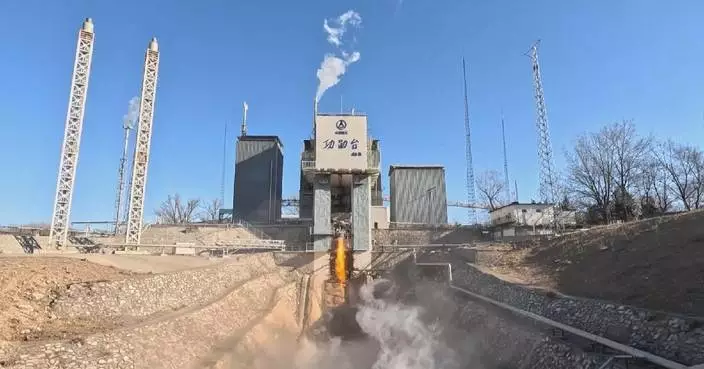
China conducts 5 rocket engine tests in Beijing, Hebei
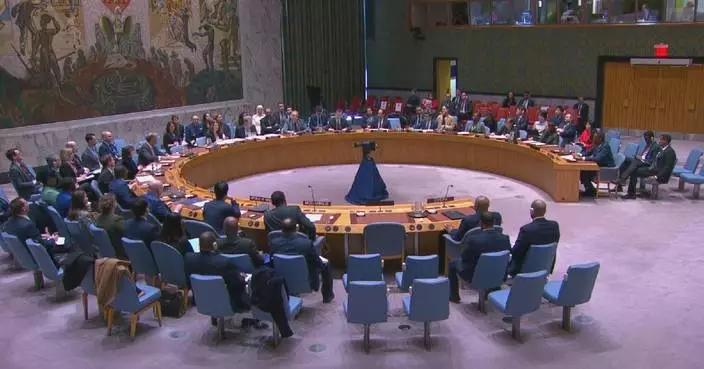
UN Security Council authorizes new AU peacekeeping mission in Somalia
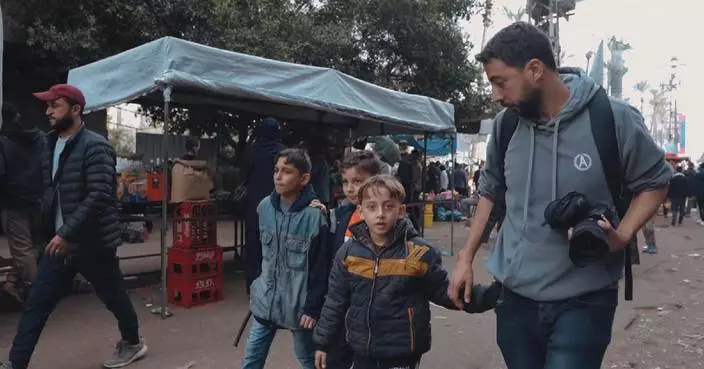
Photographer of newborns documents war's devastating reality in Gaza
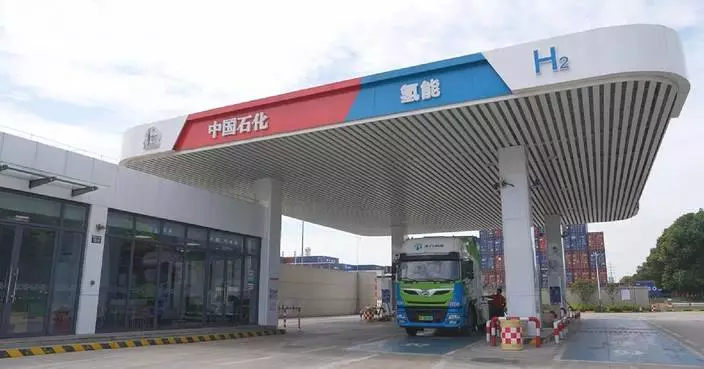
China's first energy law establishes legal framework for green transition, market reform
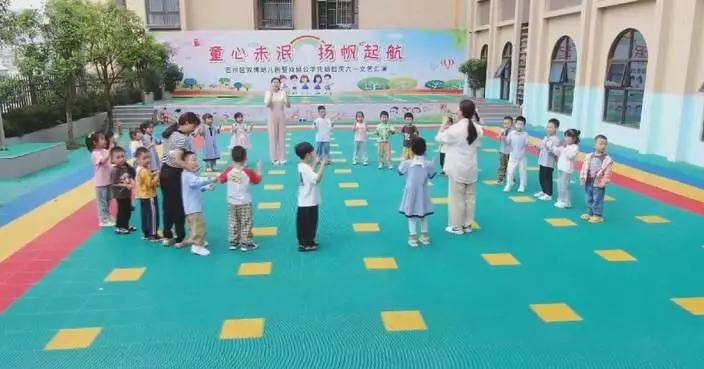
Foreign guests praise China's development achievements
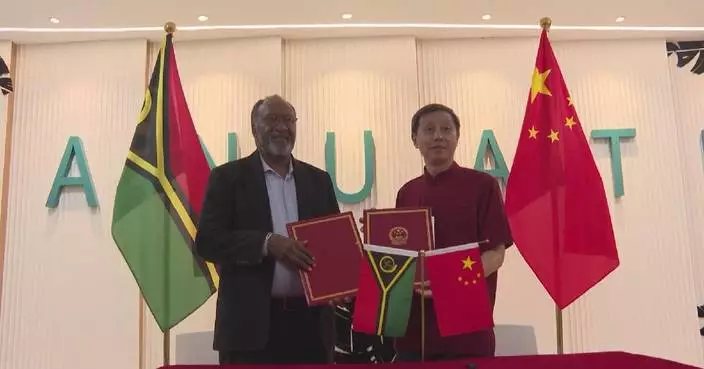
Vanuatu's PM expresses gratitude for China's disaster relief
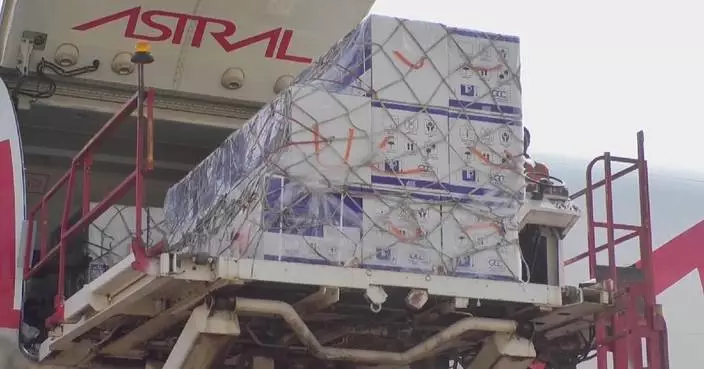
South Sudan receives 1.1 mln vaccines to contain cholera spread
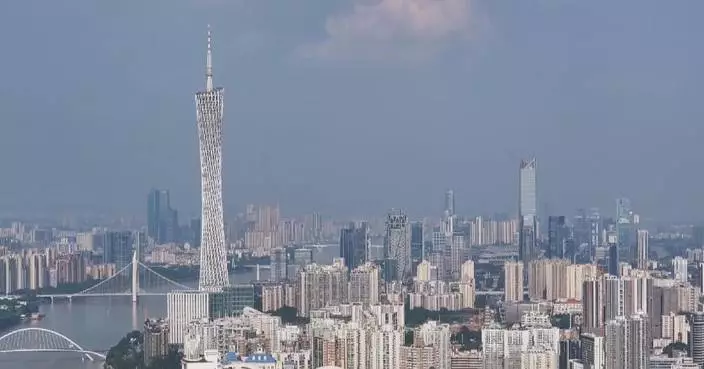
China's second-hand home transactions surge in December amid policy incentives
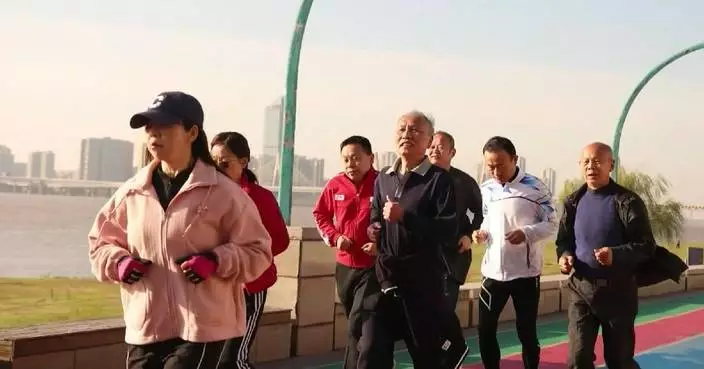
China announces interim measures for introducing flexible retirement system
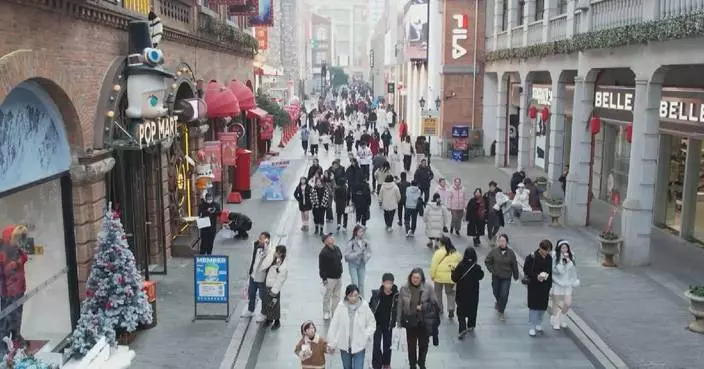
Chinese cities launch initiatives to spur consumer spending during festive season
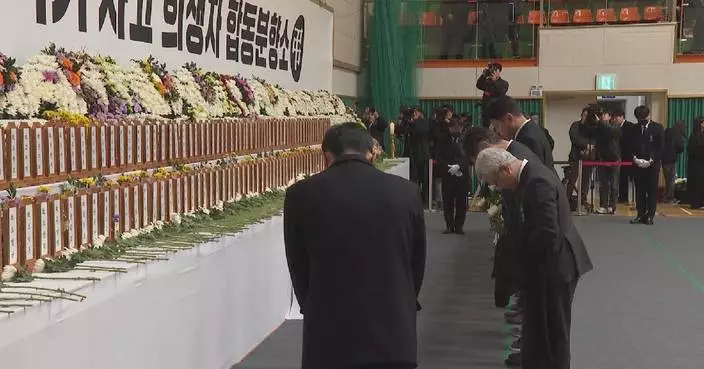
S Korea sets up memorial altar for plane crash victims
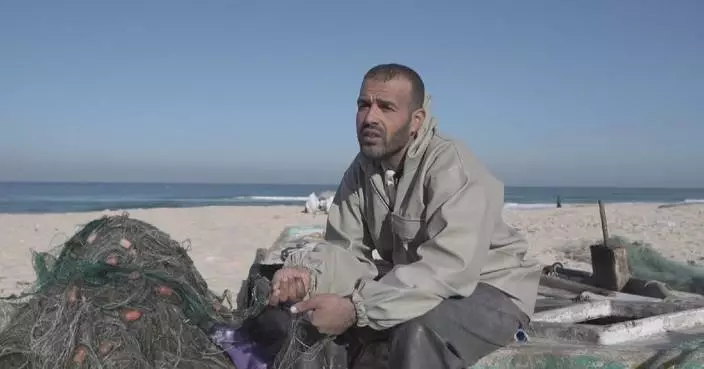
Fishermen in Gaza risk their lives in shrinking sea area
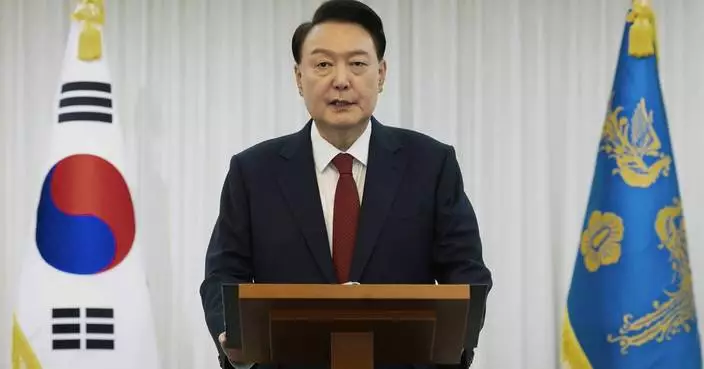
South Korean investigators attempt to detain impeached President Yoon Suk Yeol
China's first energy law establishes legal framework for green transition, market reform
Foreign guests praise China's development achievements
Vanuatu's PM expresses gratitude for China's disaster relief
South Sudan receives 1.1 mln vaccines to contain cholera spread
New regulations clarify environment, medicine import issues in Hainan Free Trade Port
China's software, IT service industry sees double-digit growth in revenue in Jan-Nov 2024
China aims to annually achieve at least 15 pct data industry growth by 2029
China conducts 5 rocket engine tests in Beijing, Hebei
UN Security Council authorizes new AU peacekeeping mission in Somalia
Photographer of newborns documents war's devastating reality in Gaza
China's second-hand home transactions surge in December amid policy incentives
China announces interim measures for introducing flexible retirement system
Chinese cities launch initiatives to spur consumer spending during festive season
S Korea sets up memorial altar for plane crash victims
Fishermen in Gaza risk their lives in shrinking sea area

South Korean investigators attempt to detain impeached President Yoon Suk Yeol
Feature·Bloggers

Freeman and Notre Dame handle 'tough moments' and oust Georgia from CFP with 23-10 win in Sugar Bowl
- Apple to pay $95 million to settle lawsuit accusing Siri of eavesdropping
- The Latest: The FBI now says the New Orleans truck attacker acted alone in an 'act of terrorism'
- 2 dead and 18 injured in Southern California plane crash
- AP Week in Pictures
- Postponed Sugar Bowl played with enhanced security about 36 hours after terror attack in New Orleans
- FBI says driver in New Orleans rampage acted alone and was '100%' inspired by Islamic State group
- BC teammates Hagens, Leonard each score twice, US routs Switzerland 7-2 in world junior quarterfinal
- Bailey Zappe to start Browns' season finale. He's 4th QB this season and team's 40th since 1999
- Soldier shot self in head before Cybertruck exploded outside Trump's Las Vegas hotel, officials say
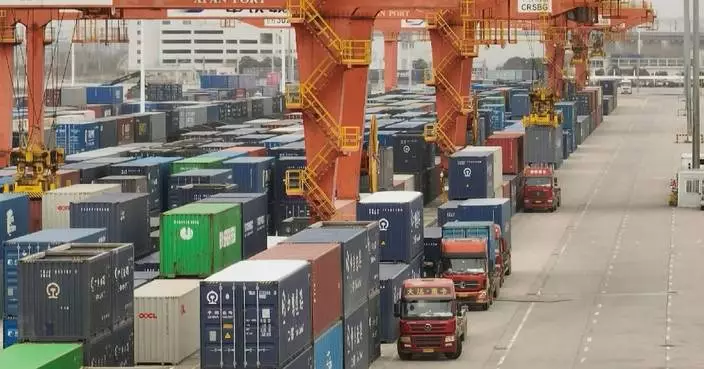
China's logistics sector in Dec reaches new high for 2024
- S Korean investigators launch attempt to arrest impeached President Yoon
- E-commerce platforms ensure holiday supplies with logistics support
- Fishermen, seafood farmers embrace new year with good harvest in Sichuan, Jiangsu
- Kenyan, Egyptian experts on Xi's New Year address
- Ningbo airport launches first direct flight to Phnom Penh
- Xinjiang opens new chapter in fighting desertification
- Xi's New Year address encourages people to contribute more to Chinese modernization
- Research center on building community with shared future for mankind inaugurated in Beijing
- Various PLA services start annual training for 2025
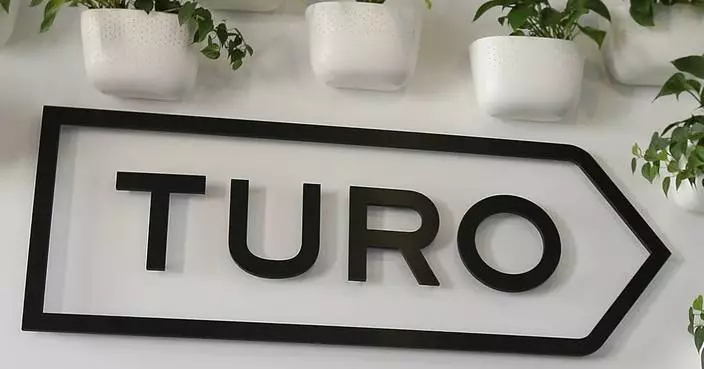
Turo-rented cars were involved in 2 deadly incidents this New Year's. Here's what we know
- SK hynix to Unveil 'Full Stack AI Memory Provider' Vision at CES 2025
- TORRAS to Showcase Pioneering Personal Air-Conditioning Cooling Tech and More at CES 2025
- Govee Partners with IDC to Discuss the Impact of Smart Lighting and the Future of Smart Living In a New Whitepaper
- Tesla sales dropped 1.1% in 2024, its first annual decline in a dozen years
- Puerto Rico's new governor sworn in days after a major blackout left much of the island in the dark
- Stock market today: Wall Street opens 2025 with more modest losses
- Crypto mogul Do Kwon pleads not guilty in first US court appearance
- CathWorks Announces the Completion of Enrollment for Landmark ALL-RISE Randomized Controlled Trial
- A data company has figured out which airlines fly on time most often
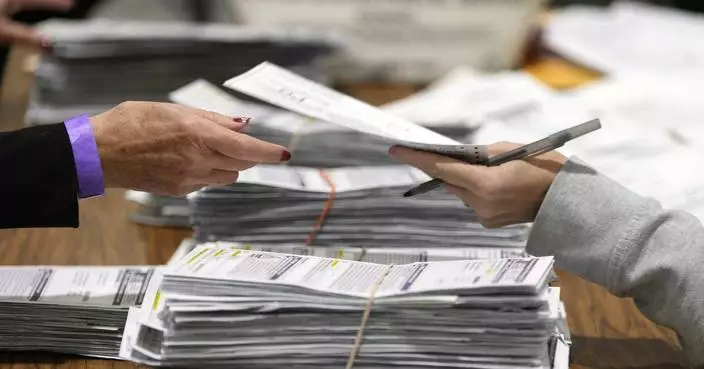
Nearly 200 ballots went uncounted in Wisconsin and officials want to know why
- 5 things we know and still don't know about COVID, 5 years after it appeared
- Parts of the UK are flooded by heavy rain as wild weather continues to disrupt New Year's events
- Psychedelic therapy begins in Colorado, causing tension between conservatives and veterans
- New York employers must now offer paid medical leave during pregnancy
- Sephora’s 2025 Beauty Insider Birthday Gifts – The Biggest Celebration Yet!
- Here's your 2025 guide to the night sky and other celestial wow moments
- Tune In, Turn On & Drop Out with WhistlePig's Sex, Drugs, Rock & Dry Old Fashioned
- Nazem Kadri scores tiebreaker in the 3rd period as the Flames beat the Canucks 3-1
- AP PHOTOS: The month of December in pictures
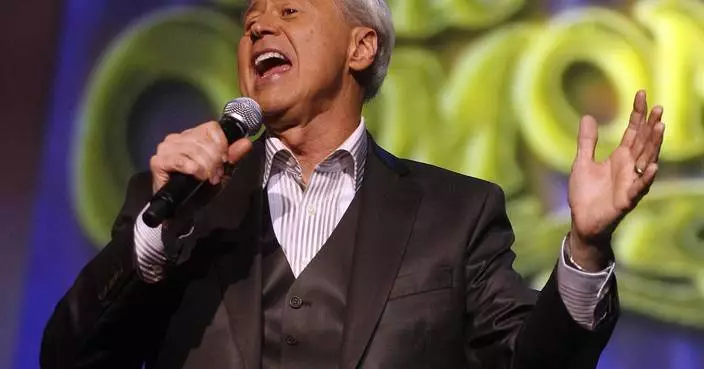
Wayne Osmond, singer and guitarist for The Osmonds, is dead at 73
- Rosita Missoni, matriarch of Italian fashion house that made zigzag knitwear iconic, dies at age 93
- British rapper Stormzy banned from driving for using phone behind wheel of his Rolls-Royce
- Japanese emperor and his family greet flag-waving crowd at the palace for New Year's
- The world welcomes 2025 with light shows, embraces and ice plunges
- Blake Lively sues 'It Ends With Us' director Justin Baldoni alleging harassment and smear campaign
- Woman burned to death in New York subway is identified as 57-year-old from New Jersey
- Former CNN anchor Aaron Brown, who helped viewers through the Sept. 11 attacks, has died
- Netflix averages more than 30 million viewers globally for its NFL Christmas Day doubleheader
- Viktor Hovland comes off a 4-month break in search of his swing and breaks a toe in Hawaii
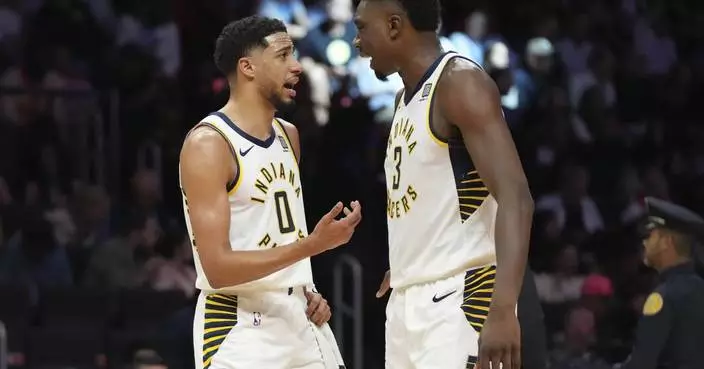
Haliburton scores 33 and hands out 15 assists, leading Pacers to 128-115 win over Heat
- Boldy scores in shootout to lift Wild past Capitals after Ovechkin gets No. 871
- India's top order collapses to 57-3 at lunch vs Australia on Day 1 of 5th test. Sharma 'rested'
- Fulwiley scores 17, No. 2 South Carolina uses 17-0 second-half run to beat Missouri, 83-52
- Alex Ovechkin scores on Marc-Andre Fleury for a 28th time to move 24 away from the NHL goals record
- Lions host Vikings on Sunday night, winner earns No. 1 seed in NFC and loser falls to No. 5 seed
- Brewers acquire RHP Grant Anderson from Rangers for minor league LHP Mason Molina
- Niners QB Joshua Dobbs makes his return to the desert when he faces the Cards in season finale
- Lakers star Anthony Davis sits out against Portland to rest sprained left ankle
- NASCAR Cup driver Shane van Gisbergen uninjured in a speedway crash in New Zealand

Authorized Person Disciplined for Negligence in Yuen Long Construction Project
- HAD Clarifies District Council Members' Attendance Rates Amid Media Reports
- Customs Seize Space Oil Drug Capsules at Lok Ma Chau Control Point, Two Arrested
- FEHD Reports Theft of Sensitive Documents, Alerts Affected Individuals About Personal Data Breach
- Hong Kong Faces Rising Influenza Activity; Vaccination Urged for All Residents
- Customs Leaders from Hubei and Hong Kong Discuss Air Cargo Cooperation and Smart Airport Development
- Hong Kong Retail Sales Decline 7.3% in November 2024 Amid Changing Consumption Patterns
- Joyful Dance Piazza: Inclusive Performances Celebrate Harmony at Hong Kong Cultural Centre This Sunday
- HKMA Announces New Notes Exchange for Chinese New Year from January 14 to 28, Encourages Electronic Lai-See
- Hong Kong Launches Dog Vaccination Campaign at Fishing Ports to Prevent Rabies Outbreak
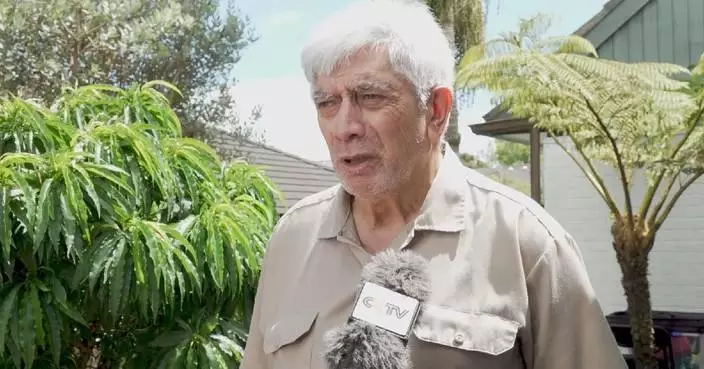
Relaxed visa-free policy fuels int'l eagerness for visit to China
- Foreign visitors flock to China as New Year begins
- Adorable panda cubs capture hearts with clumsy charm
- China's emergency relief supplies arrive in Vanuatu
- Giant panda cub explores new ways to enjoy swing
- China's first corgi police dog amaze people with outstanding explosive detection skills
- Macao records nearly 35 mln passenger arrivals in 2024
- China-Laos Railway handles over 50 million tons of goods
- Chinese premier urges Shandong to strive for strong economic start in 2025
- Climate change harms coffee production in Vietnam, Honduras
Category · News

Authorized Person Disciplined for Negligence in Yuen Long Construction Project

Haliburton scores 33 and hands out 15 assists, leading Pacers to 128-115 win over Heat

Boldy scores in shootout to lift Wild past Capitals after Ovechkin gets No. 871

Freeman and Notre Dame handle 'tough moments' and oust Georgia from CFP with 23-10 win in Sugar Bowl
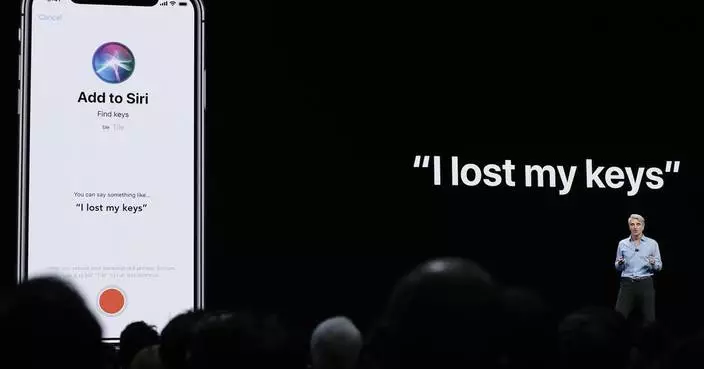
Apple to pay $95 million to settle lawsuit accusing Siri of eavesdropping

The Latest: The FBI now says the New Orleans truck attacker acted alone in an 'act of terrorism'
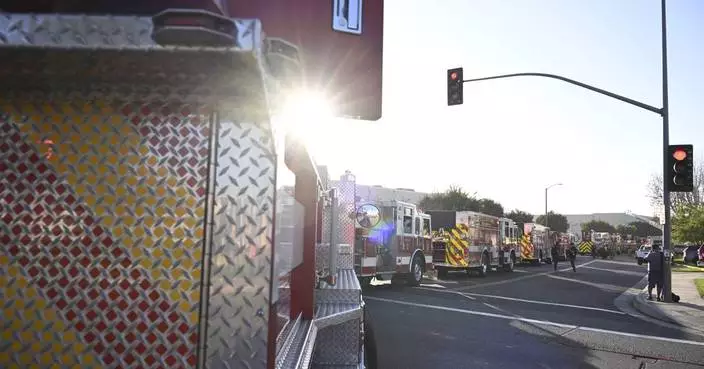
2 dead and 18 injured in Southern California plane crash
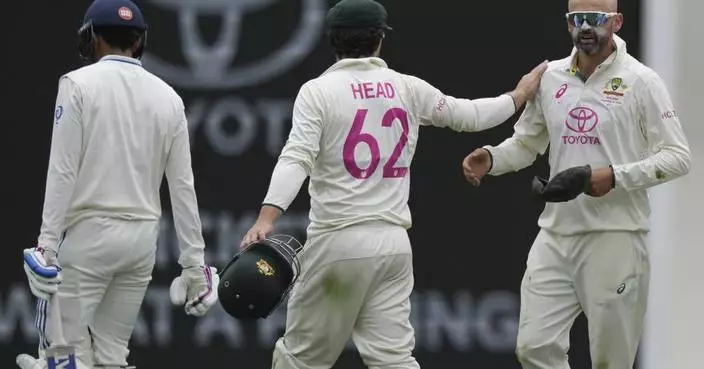
India's top order collapses to 57-3 at lunch vs Australia on Day 1 of 5th test. Sharma 'rested'

Fulwiley scores 17, No. 2 South Carolina uses 17-0 second-half run to beat Missouri, 83-52

AP Week in Pictures
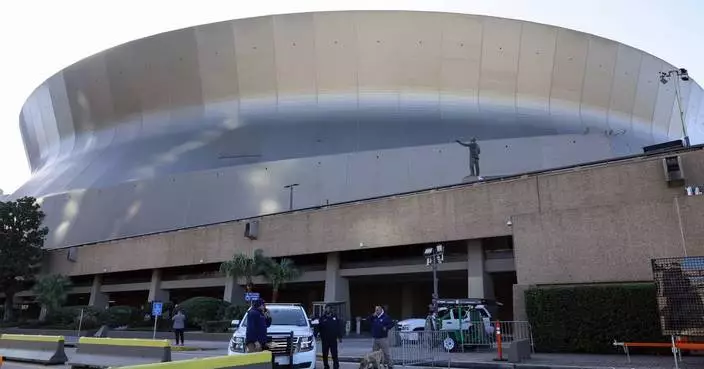
Postponed Sugar Bowl played with enhanced security about 36 hours after terror attack in New Orleans
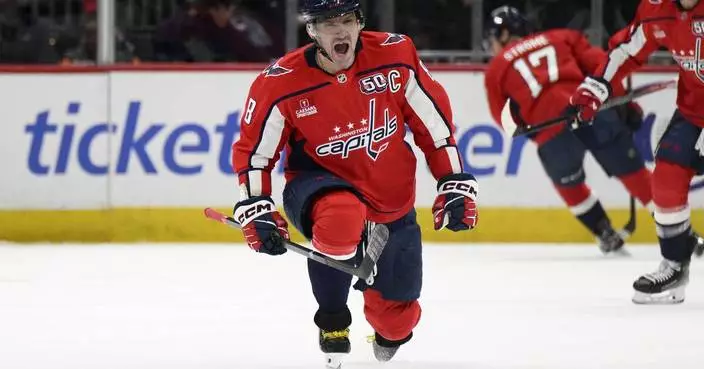
Alex Ovechkin scores on Marc-Andre Fleury for a 28th time to move 24 away from the NHL goals record

Lions host Vikings on Sunday night, winner earns No. 1 seed in NFC and loser falls to No. 5 seed
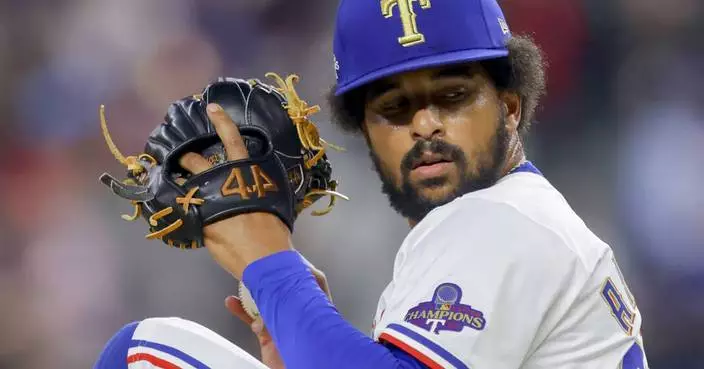
Brewers acquire RHP Grant Anderson from Rangers for minor league LHP Mason Molina

China's logistics sector in Dec reaches new high for 2024

Niners QB Joshua Dobbs makes his return to the desert when he faces the Cards in season finale

FBI says driver in New Orleans rampage acted alone and was '100%' inspired by Islamic State group

BC teammates Hagens, Leonard each score twice, US routs Switzerland 7-2 in world junior quarterfinal

Bailey Zappe to start Browns' season finale. He's 4th QB this season and team's 40th since 1999
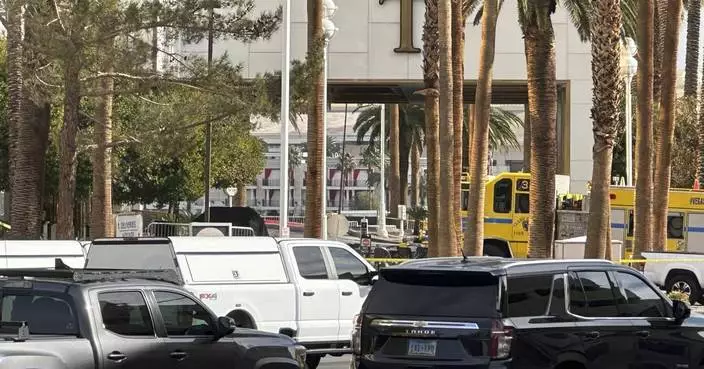
Soldier shot self in head before Cybertruck exploded outside Trump's Las Vegas hotel, officials say

Lakers star Anthony Davis sits out against Portland to rest sprained left ankle

NASCAR Cup driver Shane van Gisbergen uninjured in a speedway crash in New Zealand
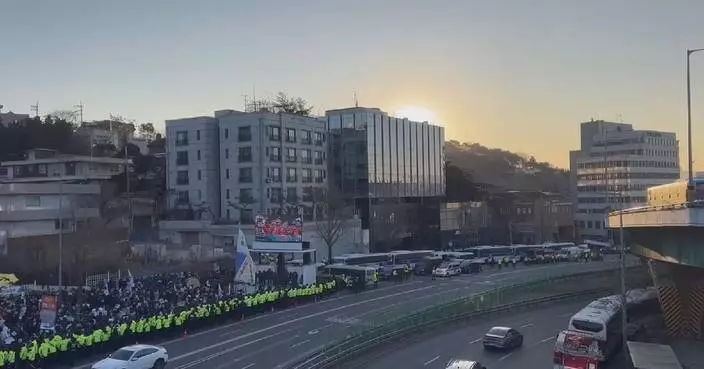
S Korean investigators launch attempt to arrest impeached President Yoon

Turo-rented cars were involved in 2 deadly incidents this New Year's. Here's what we know
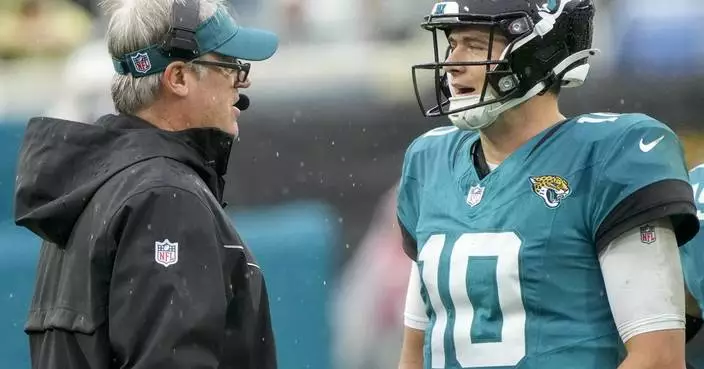
Jaguars, Colts try to salvage something from disappointing seasons

Governor seeks resignation of Western New Mexico University regents after spending revelations
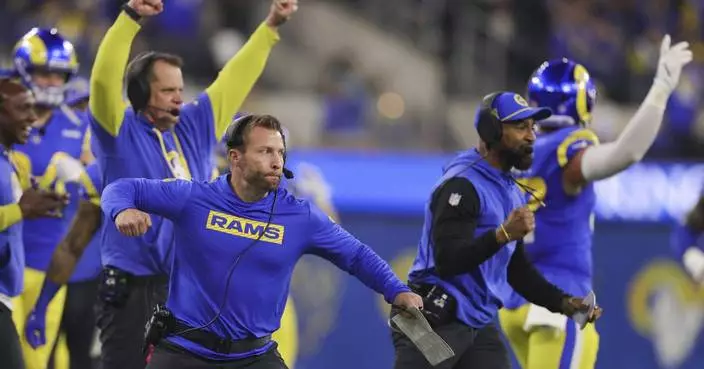
Seahawks stay motivated for season finale, while Rams plan to rest some starters before the playoffs

Joshua Dobbs will use Week 18 start for the 49ers as an 'audition' for free agency
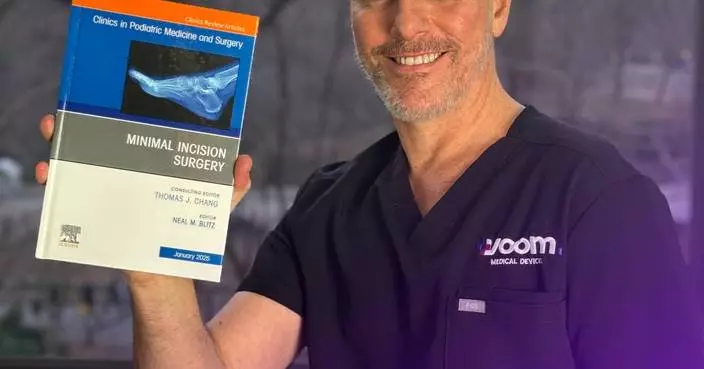
Voom Founder + CEO Dr. Neal Blitz, DPM, FACFAS, Guest Editor for January 2025 Issue of Clinics in Podiatric Medicine and Surgery on MIS

SK hynix to Unveil 'Full Stack AI Memory Provider' Vision at CES 2025

TORRAS to Showcase Pioneering Personal Air-Conditioning Cooling Tech and More at CES 2025

Darts sensation Luke Littler reaches final at world championship

Pelicans guard Jose Alvarado says he will return from injury against the Wizards on Friday
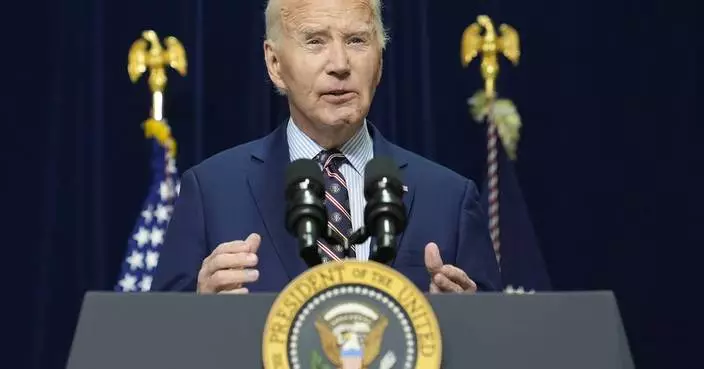
Biden awards the 2nd highest civilian award to leaders of the Jan. 6 committee and 18 others
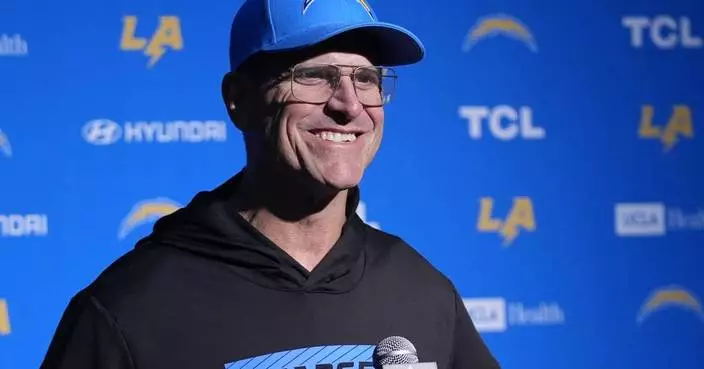
Chargers and Raiders heading in different directions as teams meet in regular-season finale

Minnesota Wild captain Jared Spurgeon out 2-3 weeks after getting injured on slew-foot
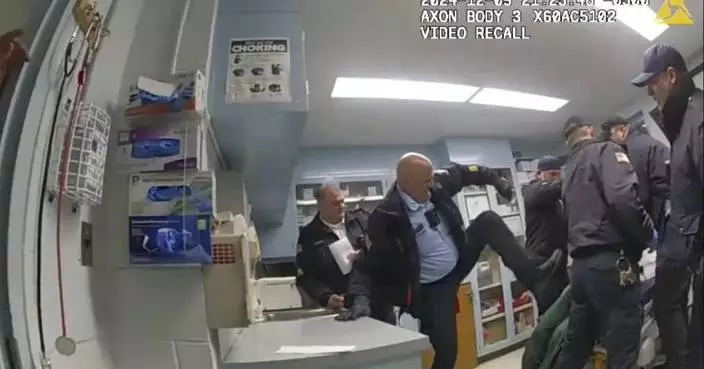
Special prosecutor appointed in death of man beaten by New York corrections officers
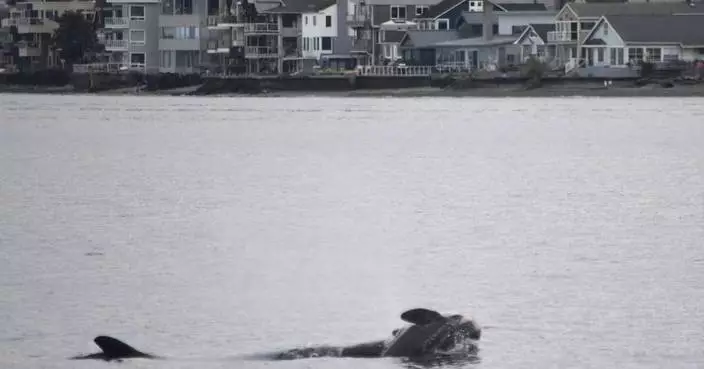
An orca that carried her dead calf for weeks in 2018 is doing so once again
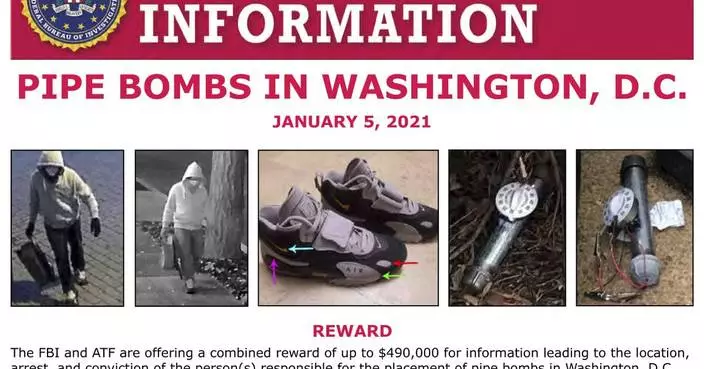
FBI releases new video of a suspect planting a pipe bomb near DNC offices on eve of the Capitol riot

An Army veteran's path to radicalization followed divorces, struggling businesses in Texas
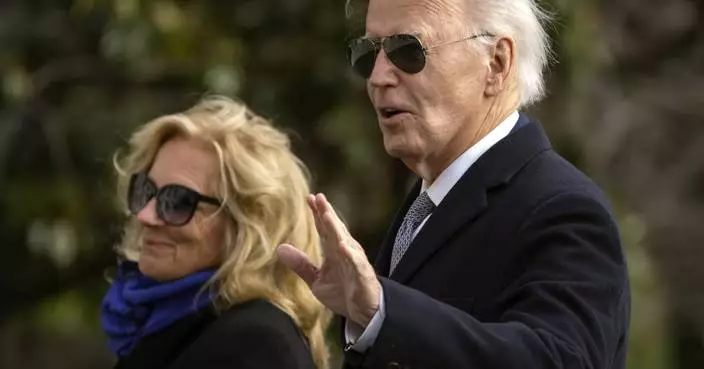
Jill Biden gets the priciest gift from a foreign leader in 2023 — a $20,000 diamond
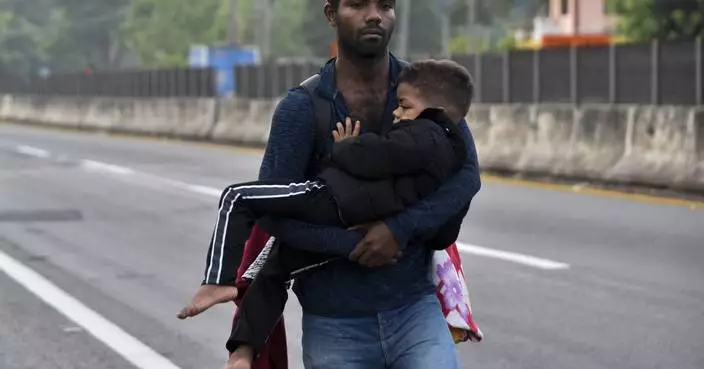
AP News Digest 6 p.m.

Big 12 commissioner calls for 'national standards' for calling targeting after controversial play
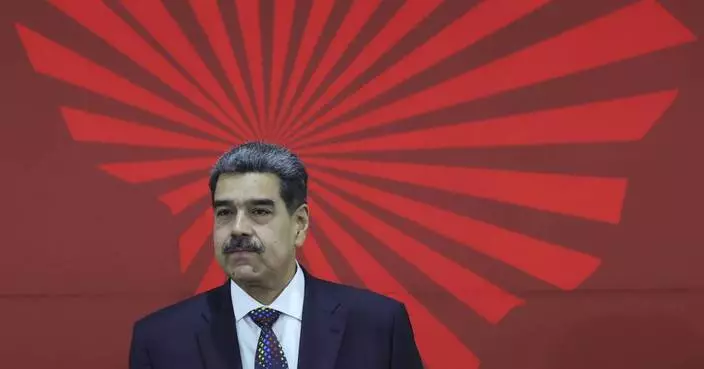
Venezuela's government offers $100K reward for whereabouts of opposition's presidential candidate

Govee Partners with IDC to Discuss the Impact of Smart Lighting and the Future of Smart Living In a New Whitepaper
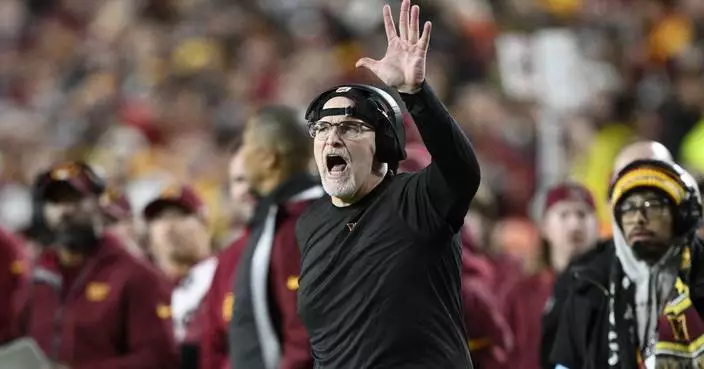
Dan Quinn returns to Dallas with playoff-bound Commanders as Cowboys finish difficult season

Wayne Osmond, singer and guitarist for The Osmonds, is dead at 73
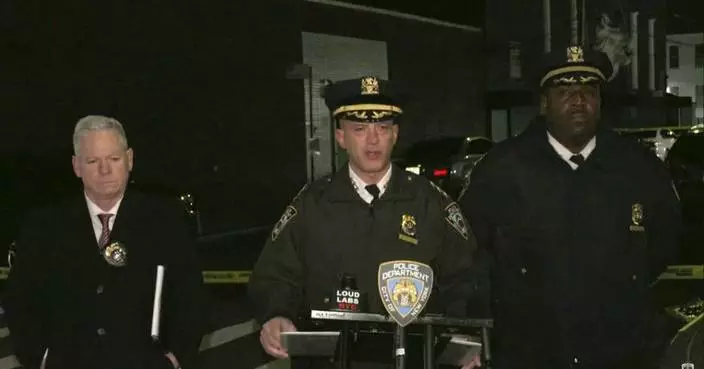
10 people are wounded in a shooting at a memorial for a teenager who was killed in NYC

The Broncos can end their 8-year playoff drought with a win over the Chiefs' backups
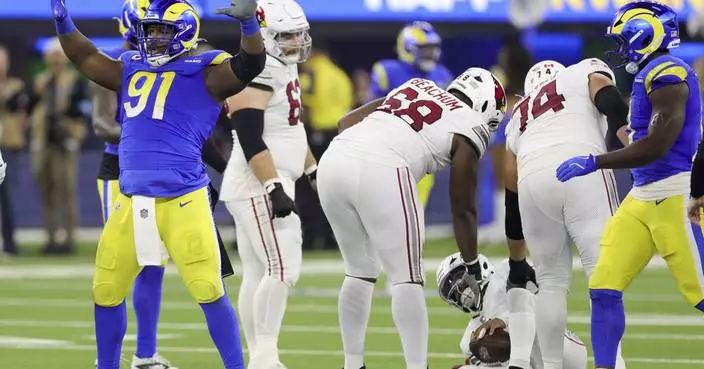
Rams can rest starters after clinching NFC West, while Seahawks left chasing individual milestones

Out of the playoff race, Cardinals, 49ers search for momentum heading into the offseason
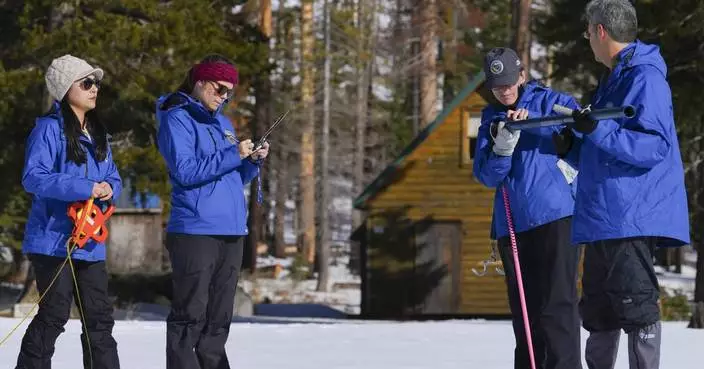
California begins 2025 with solid start to winter snowpack, but more storms are needed
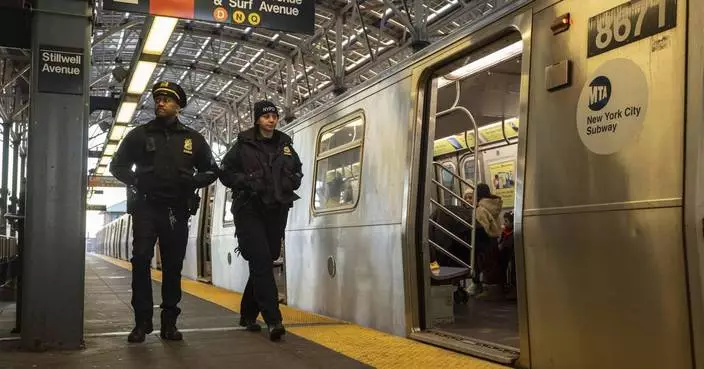
Man pushed onto NYC subway tracks recovering while suspect is charged with attempted murder

Tesla sales dropped 1.1% in 2024, its first annual decline in a dozen years

'Thursday Night Football' package on Amazon Prime Video averages 13.22 million viewers, a 13% jump
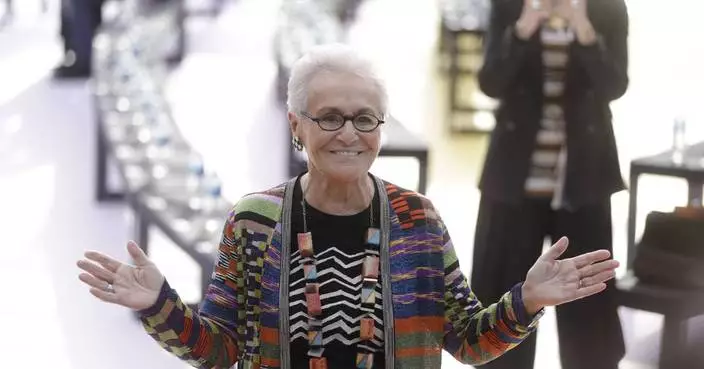
Rosita Missoni, matriarch of Italian fashion house that made zigzag knitwear iconic, dies at age 93
E-commerce platforms ensure holiday supplies with logistics support

Slumping Steelers host surging Bengals in regular-season finale with plenty of stakes
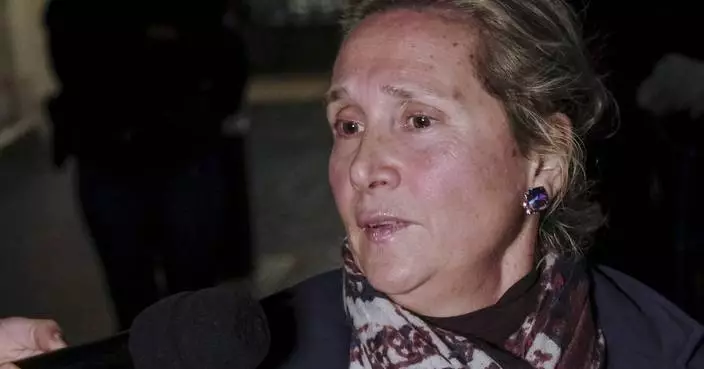
Italy-Iran diplomatic tangle escalates over detained citizens as US seeks man over drone attack
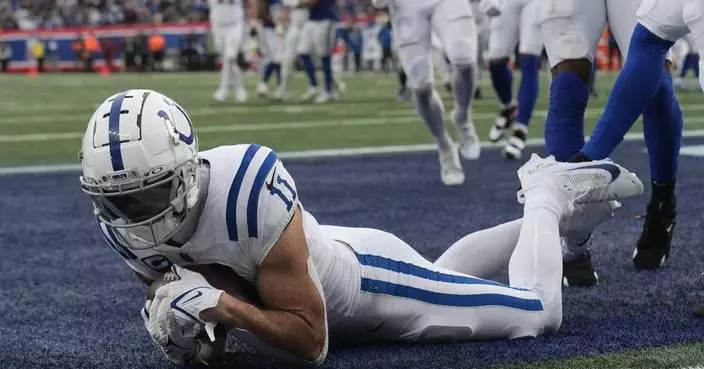
Colts and Jaguars hope their season finale provides meaningful answers heading into the offseason

Jake Kubas has gone from undrafted free agent to starting guard for the Giants

Penix, Falcons have to beat Panthers and hope for help in their last chance to end playoff drought

Christian Pulisic set to return from injury for AC Milan in Super Cup match vs. Juventus

Puerto Rico's new governor sworn in days after a major blackout left much of the island in the dark
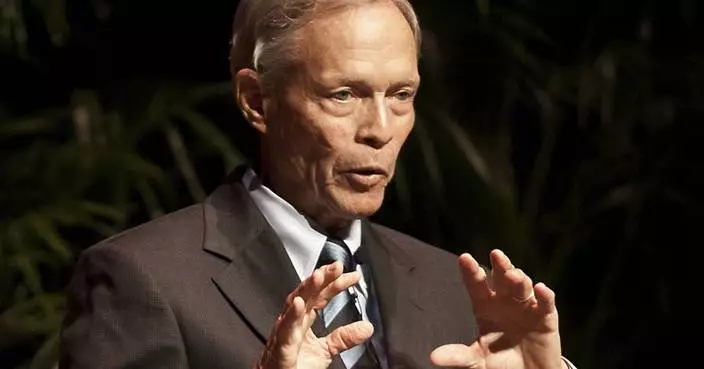
Buddy MacKay, a Democrat who briefly served as Florida's governor, dead at 91

Stock market today: Wall Street opens 2025 with more modest losses
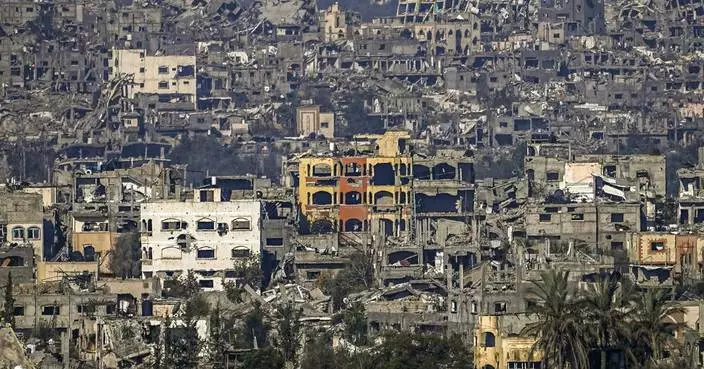
Israeli airstrike hits a Gaza humanitarian zone as Netanyahu OKs a delegation to talks in Qatar
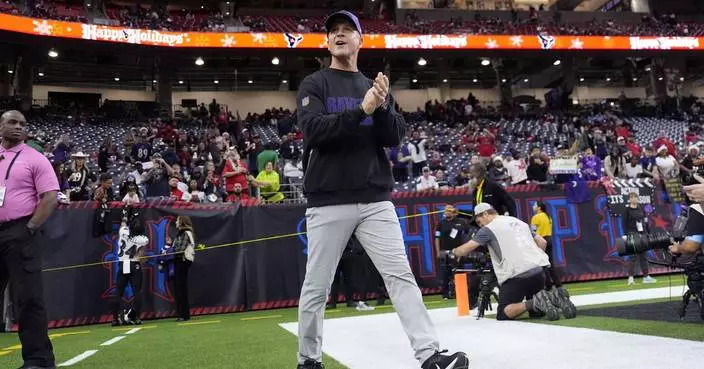
Ravens heavily favored to beat Cleveland, which would clinch the AFC North for Baltimore
Fishermen, seafood farmers embrace new year with good harvest in Sichuan, Jiangsu

Inter extends dominance over Atalanta with 2-0 win in Italian Super Cup semifinals in Saudi Arabia
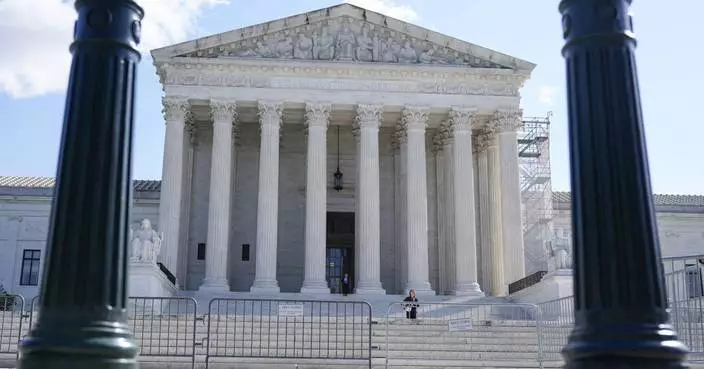
Chief Justice John Roberts defends judicial independence, says it is under threat in several ways
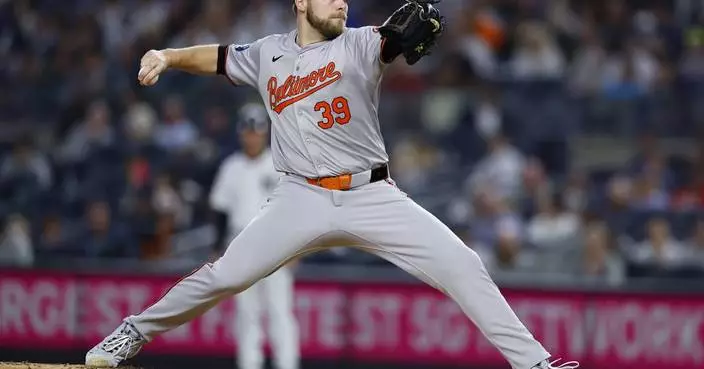
Corbin Burnes' $210 million, 6-year deal with D-backs includes $64 million deferred through 2036
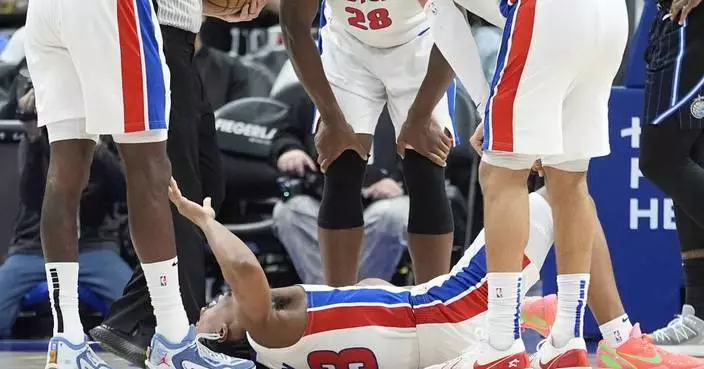
Pistons guard Jaden Ivey has surgery on leg he broke in collision vs. Magic

Dolphins face Rodgers and Jets needing a win and some help to complete a playoff-bound turnaround
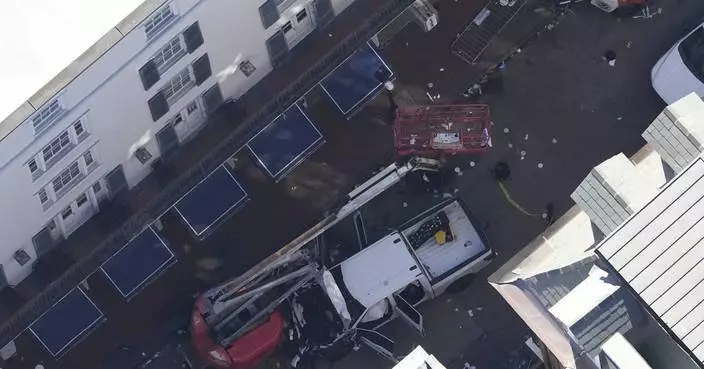
What we know about the New Year's Day attack in New Orleans

Nearly 200 ballots went uncounted in Wisconsin and officials want to know why

Bills' Allen likely to extend consecutive games starting streak in finale at Pats
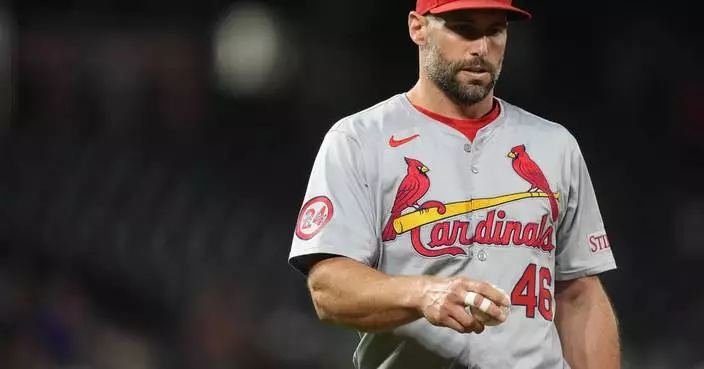
Paul Goldschmidt, joining Yankees, says of his 2024 season with Cardinals: 'I’m better than this'

Avalanche forward Valeri Nichushkin listed as day-to-day with lower-body injury
Kenyan, Egyptian experts on Xi's New Year address
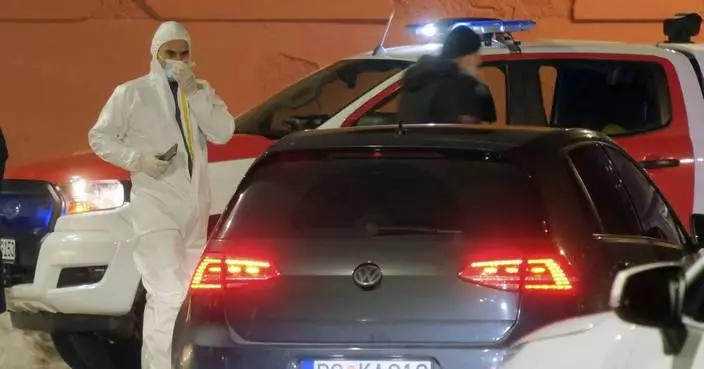
Montenegro mourns after gunman kills at least 12 people before shooting himself

Washington preps for playoffs as Cowboys finish season that ended 3-year postseason run
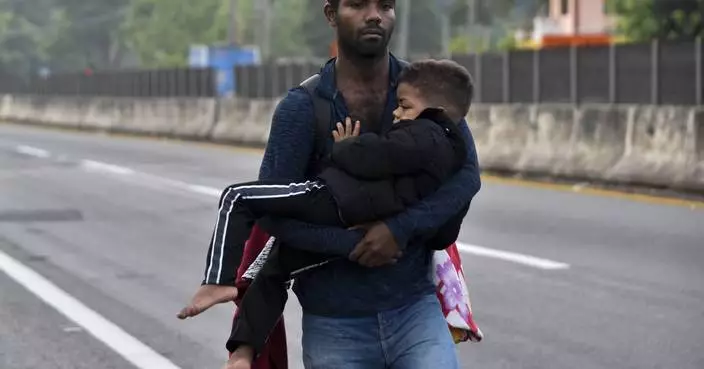
A small caravan of migrants sets out from southern Mexico but is unlikely to reach the US

Sleepypod Unveils Clickit Range Car Safety Harness, Addressing the Challenge of Restraining Dogs with Narrow and Deep Chests


